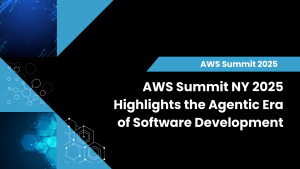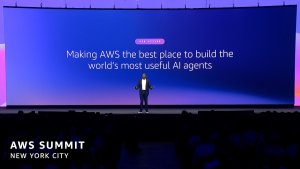Rob Strechay and Dave Vellante
In an era where artificial intelligence (AI) is rapidly reshaping the landscape of technology, a seemingly powerful coalition emerges, underscoring the perpetual motion of alliances in the technology industry. The AI Alliance, led by IBM and Meta Platforms, brings together over 50 AI companies and research organizations, signaling a new force in AI’s open-source journey. (Full Video Below)
Unpacking the Alliance
We believe that the Alliance’s commitment to open governance and confidence in AI, emphasizes the need for transparency in privacy and data protection.

The scale of this coalition from the outset is impressive in its global footprint, corporations with over $80B in R&D spending, and substantial academic support. We further observe the diverse membership participation, including leading universities and technology companies, all uniting to shape AI’s future on open platforms and infrastructure.
The Missing Giants and Industry Dynamics
A notable aspect of the Alliance is the absence of key players like NVIDIA, Microsoft, OpenAI, AWS, and Google. Nonetheless, we see potential implications for constituents in the AI Alliance, especially with respect to regulatory influence and industry positioning. For example, the goal of building open-source AI accelerators that would be competitive with today’s GPUs. Moreover, IBM’s long history and experience with policy makers could have further benefits for the Alliance.
The Alliance also underscores a continued shift towards openness, offering an alternative to the proprietary approaches of the absent giants. This move could redefine the industry’s posture related to AI governance and development.
Key Initiatives and Projects
The AI Alliance is not just a coalition but a proactive entity with ambitious initiatives. From fostering AI hardware accelerator ecosystems to advocating for policies creating a healthy AI environment, the Alliance is set to influence various AI domains.
We also were impressed by and highlight the importance of creating, testing, and benchmarking tools for safe AI deployment, highlighting IBM’s reputation for trust and Meta’s growing experience in addressing public policy issues. Another critical project is that of AI education, which is critically needed inside and outside of the technology industry.
The Future of AI: Scaling, Governance, and Openness
In our discussion below, we touche on critical aspects like the scalability of AI models and the importance of governance. With models like IBM’s Granite and AWS’s Titan, the focus is on how AI scales and adheres to the so-called “Chinchilla scaling laws,” balancing computational resources and model complexity. We believe the Chinchilla scaling laws don’t tell the full story and we note some other considerations:
Cost and Practicality for Organizations: Our analysis highlights the fact that not all organizations will build their own large-scale AI models like ChatGPT. Instead, they are likely to use smaller, more focused segmented language models (SLMs). This approach is more practical and cost-effective for specific needs and is consistent with theCUBE Research Power Law of Gen AI.
Foundation Models and Customization: Emphasizes the importance of selecting the right foundational model, which has been trained on appropriate data. Organizations are expected to then tune these foundation models to their specific datasets before deploying them for inference. This approach suggests a move away from a one-size-fits-all model to more customized AI solutions.
Scaling Limits and Costs: There’s a recognition that as the number of parameters, tokens, and floating points in a model increases, so does the cost. This challenges the Chinchilla laws, which may not fully account for the escalating expenses associated with scaling up AI models.
Diversity and Model Options: In our analysis below, we discuss the strategies of companies like IBM, AWS and Google, highlighting their history in open source and varied strategies in offering optionality for large language model (LLM) options. While this diversity in model choices is seen as beneficial for customers, it does not in our view represent a sustainable moat for any one company.
Trade-offs in Model Size: The size of the AI model (measured in parameters) should align with the specific use case. Not all applications require extremely large models (e.g. a trillion parameters is overkill for many applications). This is especially true in domains like HR automation.
Sustainability and Power Consumption: As models scale up, they become more power-hungry, raising concerns about sustainability.
Power Law of Gen AI: This concept suggests a landscape where large foundation models dominate, but there’s also a significant long tail focus on domain-specific applications. The “torso” of this model is expanding due to the influence of open-source and other third party offerings and various companies contributing to the AI field.

Governance and Industry Collaboration: We highlight the Alliance’s emphasis on the need for clear governance structures and collaboration across the industry, which is crucial for the responsible development and deployment of AI technologies.
The AI Alliance’s approach goes beyond mere scaling of foundation models. It considers the associated costs and the practicality of model deployment, advocating for a more balanced, sustainable development path.
Announcement Voices from The AI Alliance
Adding color to the conversation, the press release features remarks from various Alliance members. Here are a few of the 50 Alliance members’ abbreviated quotes.
- Arvind Krishna, IBM: “AI’s progress reflects the power of open innovation and collaboration. IBM is proud to join the AI Alliance, promoting an innovative AI agenda founded on safety and scientific rigor.”
- Nick Clegg, Meta: “Open AI development allows broader access and innovation. The AI Alliance unites various experts to advance AI technology and ensure responsible building.”
- Lisa Su, AMD: “AMD values collaboration and open standards in AI. We’re excited to join the AI Alliance, fostering responsible AI for positive global impact.”
- Yannis Paschalidis, Boston University: “The Hariri Institute is excited to join the AI Alliance, advocating for open, ethical AI in science and healthcare.”
- Andrew Feldman, Cerebras Systems: “Cerebras aims to democratize AI compute. We’re aligned with the AI Alliance in fostering efficient, responsible AI development.”
- Tom Mihaljevic, Cleveland Clinic: “Joining the AI Alliance, we aim to enhance patient care and medical research through collaborative AI advancements.”
- Krystyn J Van Vliet, Cornell University: “Cornell is eager to join the AI Alliance, contributing to AI advancements for societal benefit through open innovation.”
- Jeff Boudreau, Dell Technologies: “Open ecosystems are crucial for meaningful AI progress. The AI Alliance fosters diverse, transparent collaboration.”
- Deepak Patil, Intel: “Intel supports the AI Alliance’s mission of advancing AI through open, ethical, and responsible collaboration.”
- Jim Zemlin, Linux Foundation: “The AI Alliance aligns with our goal of open, trustworthy AI development, enhancing collaborative efforts.”
- Jerry Liu, Llama Index: “We support the AI Alliance’s focus on open-source AI, empowering developers to integrate AI with private data.”
- David Kanter, MLCommons: “We’re excited to collaborate with the AI Alliance in advancing AI safety and performance standards.”
- Kevin Murphy, NASA: “NASA supports the AI Alliance’s commitment to open, diverse, and responsible AI development.”
- Sethuraman Panchanathan, NSF: “NSF partners with the AI Alliance to support AI-driven discovery and innovation, enhancing the NAIRR pilot.”
Our Angle: Shaping the Future of AI
The AI Alliance represents a significant and needed shift in the AI landscape. By advocating for open-source AI, the Alliance is not just setting a new standard for technology development but is also shaping the future discourse on AI governance, ethics, and societal impact.
As the interview and press release illustrates, this coalition is more than a gathering of industry giants; it’s a unified voice advocating for a responsible, transparent and an equitable AI future. The AI Alliance, with its diverse membership and ambitious goals is poised to redefine the AI industry, ensuring that its growth is both responsible and inclusive. While there are still hurdles to overcome, such as the governance of open-source projects, this is an opportunity for AI to take a step forward toward transparency.
Watch the full video analysis:



